When a father has AIDS, are the children he lives with susceptible to infection?
The father has AIDS and lives with the child in this close parent-child relationship.Children are more exposed to the HIV environment and are relatively more susceptible to infection.
The father of an AIDS patient is not only a patient, but also the backbone of the family, and the child cannot afford to be deprived of the father's education and care, and having to face the situation of living with the child may inevitably pose a threat to the child.
However, in reality instances of seed transmission are very rare. Why rare? Because it still happens. Infections occur.It may have a lot to do with the closeness of family members, customs, knowledge, and even the level of poverty.
Some people may not be happy to read this: why is it still related to knowledge and literacy? Because, for some people infected with AIDS, who themselves do not have much literacy and do not have a deep understanding of the ways in which this disease is transmitted.Having no concept of minding their own bodily fluids and blood, and even moving to commit domestic violence against children.Then, the child in this case is at risk of contracting the infection through the blood route in the event of various traumas occurring.
Dr. Long has managed many HIV-infected people, some of whom are spouses and children, including single-positive families (where one spouse has AIDS and the other does not). In the course of management, she found that popularization education for HIV-infected patients and their families is very important.
We all know that between family members, ordinary life contact, in the absence of blood exposure and direct contact with wounds, is not contagious. This requiresinfected persons to manage their personal belongings, as well as to deal with conditions such as broken skin.Minimize the risk of HIV excretion in the environment.
Fundamental to reducing infectiousness is the reduction of HIV nucleic acid (HIVRNA) in the blood and body fluids.HIV-infected patients generally achieve this with regular, effective antiretroviral therapy. In the course of treatment, actively follow the prescribed review, when HIV nucleic acid in the blood continues to be undetectable, basically does not have the possibility of infection through sex and ordinary life contact.
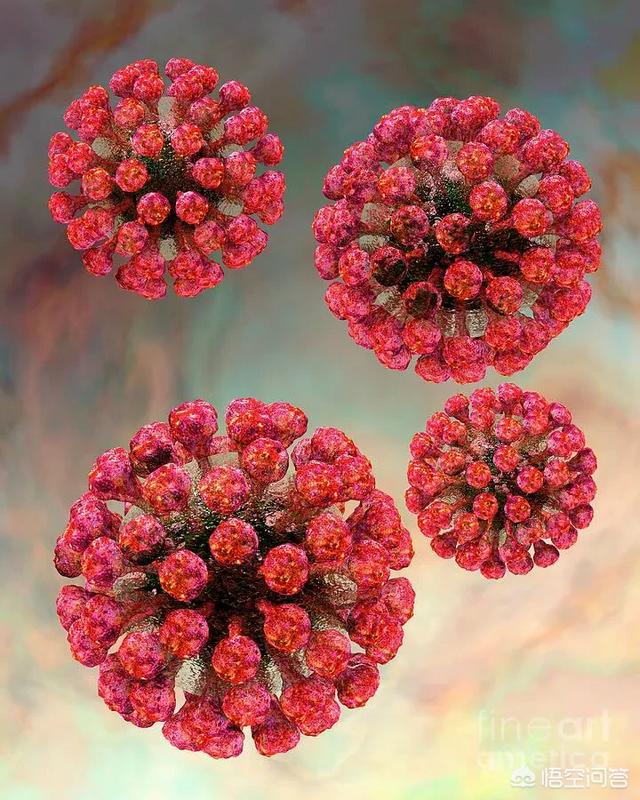
Science and technology is the most heartfelt and reliable Dr. Long! Welcome to leave a message, discuss, like, retweet and follow!
If the father has AIDS, the children living with him will generally not be infected by the father with a little care.
AIDS is an infectious disease, the source of infection is patients and carriers of the pathogen, and the population is generally susceptible. It is transmitted vertically, through blood, and sexually. As a father with AIDS



of the child, although two of the three segments of the infection are already present, i.e., the father of the AIDS patient living with him and the self being susceptible, the transmission pathway is virtually non-existent. Because there is no vertical transmission between the father and the child, there is no sexual contact or blood transmission. Eating the same dish of food and living in the same house in daily life is not contagious because AIDS is not transmitted through the digestive tract or the respiratory tract, that is to say, AIDS is not transmitted through food and air.
HIV is mainly the patient's body fluids or blood through the broken skin and mucous membranes into the victim's body, so as a father should pay attention to not and children and mutual use of razor tools, do not easily put their own body fluids or blood to let the child contact. As a child, you should also pay attention to not touching the supplies contaminated by your father's body fluids and blood, in order to prevent the virus from entering the human body through broken skin and mucous membranes.
I specialize in AIDS prevention and I'll answer that.
If there are no accidents, children living with HIV-infected people are not easily infected, but there is still a risk of infection. AIDS is a disease that destroys the human immune system, with an incubation period ranging from a few years to several decades, no cure, a mortality rate close to 100 percent, and a great deal of social harm.
However, at present, AIDS is in a controllable and preventable state, and its three main ways of transmission are: blood transmission, mother-to-child transmission and sexual contact transmission. Of course, with the son of a normal life, sexual transmission and mother-to-child transmission does not exist, so its transmission is relatively narrow, although its transmission is unlikely, but still need to pay attention to the occurrence of infection, just in case. Therefore, we need to understand the daily life of those behaviors lifestyle will or will not be infected with AIDS?
First of all, general contact and physical collision will not be infected; another example is simply eating together, shaking hands, talking, sharing toilets, etc. will not lead to infection; of course, people are worried about mosquito bites will not cause infection; there are also people who worry that sneezing and other behaviors will make the HIV virus, like any other viruses through the respiratory tract and get infected, this worry is meaningless, because the HIV virus has poor ability to survive outside of the body, so it will not be infected. Therefore, it will not be infected.
However, life will inevitably cluck and touch, a careless will inevitably be injured and bleeding, and then spread through the blood route. If the patient has mouth ulcers, cracked lips, etc. should try to avoid eating with children at the same table, and should not share nail clippers, toothbrushes, razors, etc. with the patient to avoid contagion.
If you are unfortunately infected with HIV, you should adjust your mindset, actively take antiretroviral treatment, and take all kinds of protection in your life to avoid infection with the children you live with.
I am in the CDC specializing in AIDS prevention and treatment work, so there are questions about AIDS related issues can be concerned about the private message consulting oh, thank you.
All you really have to do about this is to learn about AIDS.
The first step is to understand the three main ways in which AIDS is transmitted:Blood transmission, sexual transmission, mother-to-child transmission.
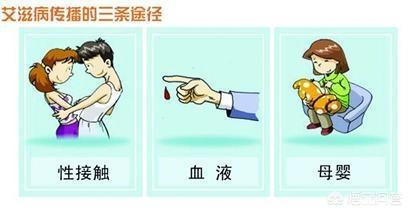
One of the most influential aspects of living with HIV is blood transmission, and it is important not to allow blood from a person with HIV to enter a normal person through a wound.
As for the other aspects, it does not need to be too horrible, such as hugging, eating, playing, basically will not spread, of course, there are conditions, or give the father separate living utensils for the best.
Secondly, the spread of AIDS is not so exaggerated that it can be contracted by mere contact, and it is important to realize that the contraction of any kind of transmitted disease requires certain conditions, such as a suitable environment, bacteria-containing or virus-containing concentrations, as well as a specific means of transmission and a suitable group of people.
Statistics are available:
In 2011, 63.9 per cent of the country's estimated number of living HIV-infected persons and patients were sexually transmitted. Of the 48,000 new infections this year, 81.6 per cent were sexually transmitted, with same-sex transmission accounting for 29.4 per cent.
As you can see from this, it is clear that the main mode of transmission of AIDS is sex, and the other thing that is not mentioned is drug use. So living together, as long as one is careful, there is generally no risk of infection.
Be sure to note this at the end:
Neither children, nor other family members, should share personal household items such as toothbrushes, razors, and shavers with their father, which are the most likely to cause blood contact.

Children are not susceptible to infection when fathers who are HIV (human immunodeficiency virus) positive live together, but examples of infection do occur.
Usually a child gets HIV because the mother is HIV-positive and transmits it to the child during pregnancy or delivery; transmission from the father to the child is rare, with one case reported in September 2018 in the journal AIDS Research and Human Retroviruses.
This case took place in Portugal, where the mother of the child was HIV-negative and the child was born naturally HIV-negative, but when the child was diagnosed as HIV-positive at the age of 4 years, the authorities immediately launched a criminal investigation because it was suspected that this was a case of sexual abuse of a child.
This makes it necessary to figure out how the child became infected.
The child was born in 2009, shortly after he was born his father was diagnosed as HIV positive and was being treated for both syphilis and chicken pox, all with large blisters that drained fluid.
The researchers sampled the father and son separately and genetically analyzed their HIV strains, and came up with the result that the father was infected with HIV first, and then transmitted it to the child after the child was born, presumably because of exposure to the virus in the blisters on the father's body, and the high concentration of the virus in the early stages of the HIV infection, which was very infectious.
In between, a few similar cases have been reported.
This type of infection between father and son is rare, and as long as the father is not exposed to his blood or body fluids, there is no problem. If the father is taking antiviral medication, he has a very low titer of the virus in his body and is not infected, either.
Nowadays, it is very common to imagine that the elderly bring up children. If the elderly have AIDS, will the children be infected?
How AIDS is transmitted, sexually, through blood, and from mother to child.
From this it seems that there is no possibility of transmission between grandfather and grandson, is this actually the case?
HIV screening is done by drawing blood for antibodies and checking for HIV nucleic acid.
There are now a number of rapid self-tests for HIV that are put into use in public places, where the test specimen can be blood or saliva.
Yeah, saliva!
According to a number of comparative research studies found that the survey respondents for 20-30 years old accounted for 57%, college education 45.7%, unmarried people accounted for 78.5%, the survey respondents saliva rapid self-test accuracy of 95%.
LI You-Fang,WANG Yu-Miao et al. Analysis of the accuracy and influencing factors of rapid saliva self-test for HIV antibody in men who have sex with men[J]. Chinese Journal of Epidemiology,2016,37(1):72-75
ZHANG Guolei, JIANG Ying, LIANG Xin,et al. Application of rapid HIV saliva testing in MSM population in park venues[J]. China AIDS STD, 2013(4):261-263.
NING Xia, ZHANG Haiyan, XU Wencai, et al. A study on the use of rapid saliva testing reagents for HIV antibody among men who have sex with men in Beijing and the factors affecting them[J]. International Journal of Virology, 2014, 21(1):16-21.
HAN Mei, FENG Liangui, JIANG Yan,et al. Application of rapid test, antigen-antibody enzyme-linked assay and pooled nucleic acid test for HIV-1 detection in MSM population[J]. International Journal of Laboratory Medicine, 2011, 32(11):1185-1186.
It suggests that saliva, like blood, is just as likely to carry HIV as it is to be a body fluid.
When the elderly take children, cook for them and feed them, then in the process, many of them used to bite the big pieces of food by themselves first, and then feed them to the children. If, as it happens, the child has an ulcer in the mouth, or a small mucous membrane rupture, it is highly likely that HIV will invade the child.
Can an elderly person with AIDS pass it on to a child?
The answer is not an absolute yes, but if everyone is very careful about their habits, using communal chopsticks for meals and everyone using their own dishes, the likelihood of infection is greatly reduced.

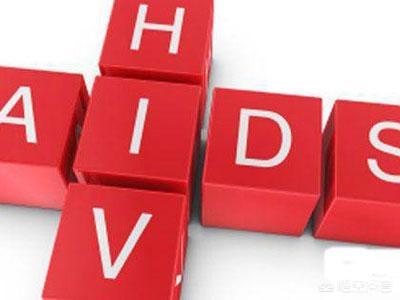 HIV is transmitted through nothing more than sex, blood and mother-to-child.
HIV is transmitted through nothing more than sex, blood and mother-to-child.
So the question that the subject is asking, whether or not viral transmission occurs during the period between the father and the child living together, should also leave blood as the only possible channel.
Blood-to-blood transmission would mean that the blood of two different individuals would cross, which is extremely rare.
 Let's compare the father to the "patient" and the child to the "doctor", then what should be taken care of in the process of contact between the doctor and the HIV-infected patient is the answer to this question.
Let's compare the father to the "patient" and the child to the "doctor", then what should be taken care of in the process of contact between the doctor and the HIV-infected patient is the answer to this question.
In other words, the same occupational exposures that doctors need to guard against are the same things that family members of AIDS patients need to be aware of.
Family members need to avoid accidentally contaminating broken skin or non-gastrointestinal mucous membranes with blood or body fluids from a sick loved one, or puncturing the skin with needles and other sharp instruments contaminated with blood or body fluids that may contain the virus, as do doctors.
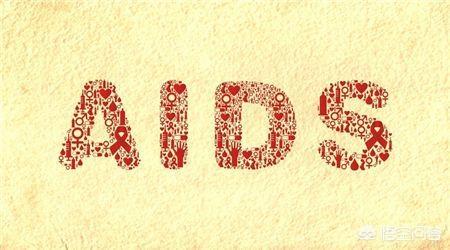 Therefore, the infected person himself, out of the protection of his family's health, on the one hand, should restrain his behavior, for example:
Therefore, the infected person himself, out of the protection of his family's health, on the one hand, should restrain his behavior, for example:
1, do not good razor, razor, etc. they have used the sharps passed to the family, or placed in the family, especially children can easily reach the place;
2. Brush your teeth, shave, etc. to minimize bleeding.
3. Clean up your act and stay away from drugs.
As other family members, it is also important to avoid the possible risks mentioned above, as well as to pay attention to careful hand washing and safe disposal of household garbage and other wastes, especially used needles, razors and blades.
If bleeding, for example, occurs in the patient himself, family members should avoid mucosal contact when assisting with disposal.
Thanks for the invitation to answer the questions! Welcome to followAnesthesiologists talk about healthWe provide answers to your disease inquiries and popularize health knowledge!
At present, our country advocates that the whole society should have a correct understanding of AIDS, prevent and control it scientifically, vigorously publicize AIDS-related knowledge through various channels, and care for AIDS patients!
AIDS is an extremely dangerous infectious disease, the incidence of which is increasing year by year. In response to this topic, I will once again popularize the transmission channels of AIDS: mother-to-child transmission, blood transmission, and sexual contact transmission! HIV does not tolerate high temperatures, poor survival ability in vitro, high heat sensitivity, daily contact will not be infectious!
After a family member has been infected with AIDS, as long as the transmission of the virus is cut off, the blood and body fluids of the infected person are strictly sterilized, and infants and young children with fragile skin and mucous membranes and relatively low immunity, as well as family members with skin lesions, avoid contact with the blood and body fluids of the AIDS patient, the transmission of the virus will not be caused, theoretically!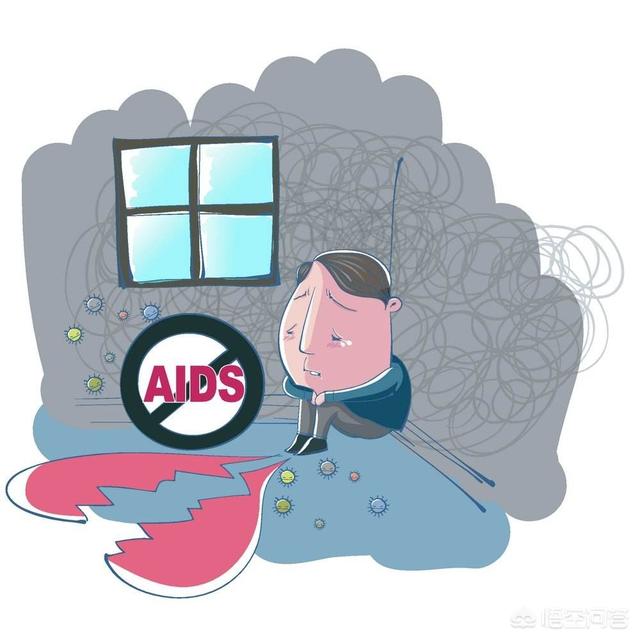
Knowing how the virus spreads, we should treat people infected with HIV scientifically and rationally, and not "talk about AIDS", they need more care!
Personal opinion for reference! Healthy China, Prevention First!
Images in the article are from the internet!
It is usually not contagious to your child. However, it is still important to know and be aware of the following.
I. Fathers should be treated aggressively to control viral activity and reduce infectiousness.
Second, avoid too intimate moves, are not contagious. The way it is easily transmitted is through close contact with bodily fluids, as shown below.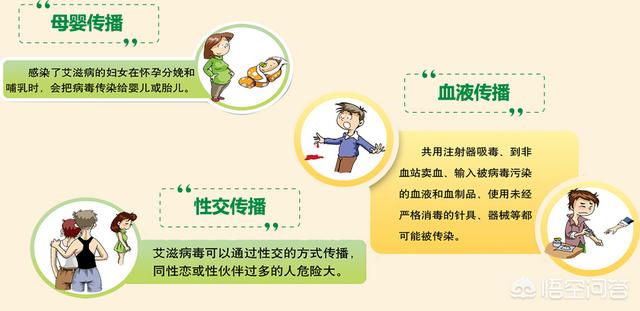
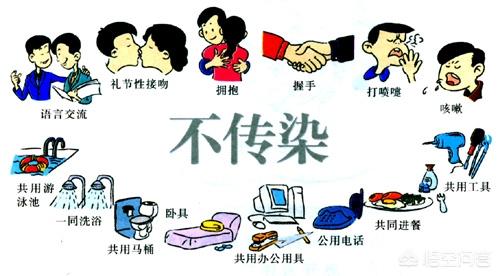
Third, although daily life contact is not easy to infect, but family life, because to live together for a long time, try to should personal belongings separate management to ensure safety.
Fourth, such as high-risk behaviors, such as: children have wounds close contact with body fluids should be early to take precautions, oral medication to prevent viral transmission.
Routine contact in life does not lead to the transmission of HIV.
Does it mean that life contact is always risk-free?
Neither is it.
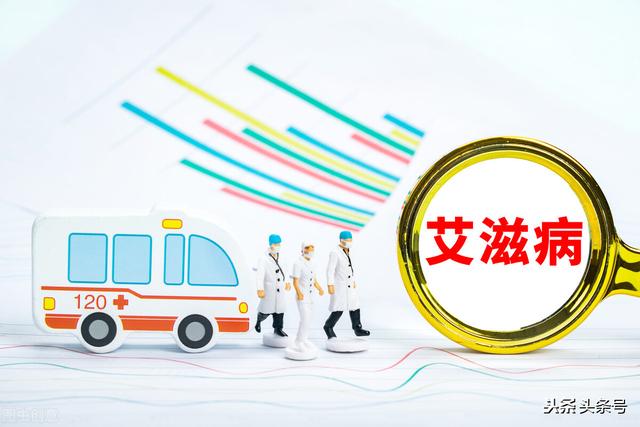
Today we're going to talk about some of the things you need to be aware of when living with HIV.
I. Which life exposures are at risk and which are not?
AIDS cannot be cured, and everyone is afraid of it. It's easy to understand. It's a fundamental human reaction to avoid harm, and it's nothing to be ashamed of.
Knowing that there is danger, of course, you should avoid it, preferably as far away as possible. However, the family relationship is doomed to not be able to escape far to hide.

However, we can distinguish and take note.
What exposures are not at risk?
Routine body surface contacts in life generally do not lead to the transmission of HIV, such as shaking hands, eating meals, sharing dishes shower utensils or office supplies, ritual kissing, and hugging. These main points of contact are body surface contacts and generally do not involve some bodily fluids that have transmission properties.
Just to be clear: saliva is not contagious。
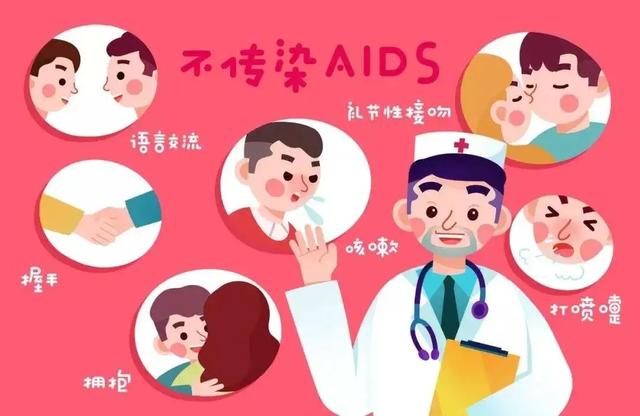
II. What may be the potential risks? What details need attention?
As with the previous distinction, behaviors that could potentially be risky generally have the potential for body fluid or blood contact, removing sexual contact or mother-to-child transmission from these, and talking about routine contacts in life.
For example, razors, toothbrushes, which may cause local bleeding, this category requires special attention, to be used separately, do not mix, it is best to use a different color or box to distinguish.

When a person with HIV is injured or otherwise causes bleeding, it is important to avoid direct contact with the patient's fresh blood. If you have to handle it, it is recommended that you wear medical rubber gloves or go directly to the hospital. Particular care should be taken especially if there is a wound itself.
III. How to proactively reduce infectiousness?
How can I reduce the infectiousness of my patients?Standardized use of antiviral drugs.
After being infected with HIV, timely, standardized and correct use of antiretroviral drugs is the key. After using the medication for a period of time, the viral titer of many patients will drop a lot or even become undetectable, in which case the virus will naturally become less infectious.
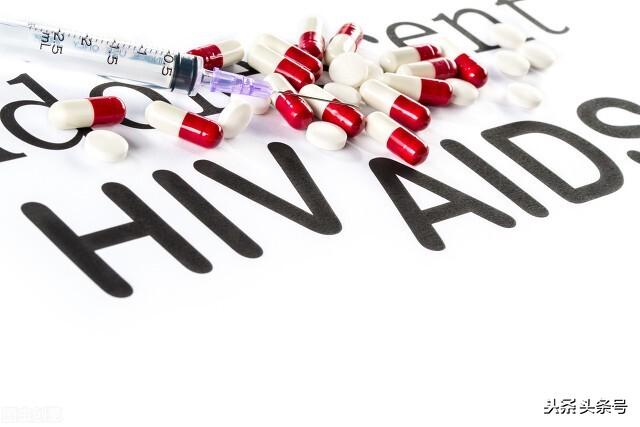
In conclusion, it is possible to live with someone who has AIDS, as long as you pay attention to some details of your life. We should know about AIDS so that we can better prevent it.
This question and answer are from the site users, does not represent the position of the site, such as infringement, please contact the administrator to delete.